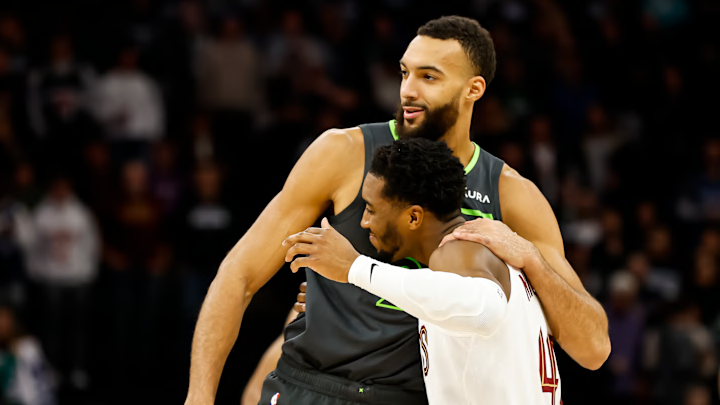Technically, it hasn't been three years since the Utah Jazz traded Rudy Gobert and Donovan Mitchell, but it's close enough, and the Jazz have played three seasons without them. Since then, there's been enough time to think about how the Jazz and their trade partners did. While nobody got ripped off in those trades, and everyone got what they wanted, nobody truly won in either deal.
That may not make sense at first glance, but when looking at what all three sides wanted when these deals were agreed to, it's fair to suggest that all three have come up well short. Let's delve into more detail, starting with the Jazz themselves.
Why the Jazz didn't win
The Jazz made out pretty well from both of these deals, as they got a haul of first-round picks from Minnesota and Cleveland when it was all said and done. These deals also led to other deals that got them more or better assets, like the Lakers' 2027 first-round pick and the Suns' 2031 unprotected first-round pick.
In addition, they received players who could factor into their next playoff contender, like Lauri Markkanen and Walker Kessler. Given that everyone knew a blowup was coming, Utah inarguably did the best they could.
So, how did they not win? Because three years later, the Jazz don't really have that foundational young talent that most rebuilding teams do three years after blowing it up. By now, most teams in the Jazz's shoes either have a clear-as-day direction and/or have that star waiting in the wings.
Because the Jazz don't have that, it's clear they didn't win either trade. At least, not yet.
Why the Timberwolves didn't win
Out of all three teams involved in these trades, the Timberwolves have fared the best. They've made two Western Conference Finals in the last three years, which is pretty impressive considering they only had one to their name prior to the trade.
But the Timberwolves made this deal believing it would vault them to title contenders. While it has put them in the conversation for the last two years, the Timberwolves have been embarrassed in the conference for two straight years, which could signify this is as good as it gets for them.
Because they have been above the NBA's second tax apron for the last two years and don't want to be there for three, some big changes could be coming. Gobert might be the one who gets the boot because of it. If he does, Minnesota didn't win the deal.
Why the Cavaliers didn't win
Cleveland is basically in the same place as Minnesota, only worse. They've made legitimate strides with each passing season, but no substantial progress has been made. The Cavaliers still couldn't get past the second round even after posting historical regular-season numbers.
Like the Jazz and Timberwolves, the Cavaliers haven't gotten what they wanted, but the one key difference is that Mitchell has proven to be worth every penny. They were right to believe he was their guy, and the questions about their long-term standing are about the rest of the roster.
So while this trade gave them their best player since LeBron James, they haven't taken the necessary steps they hoped to, signifying that they did win the deal.
It's not too late for these teams, especially the Jazz, to change their fortunes from these trades. However, even though none of these teams made the wrong decision, not getting what they wanted three years after the fact makes it clear that there was no outright winner.
